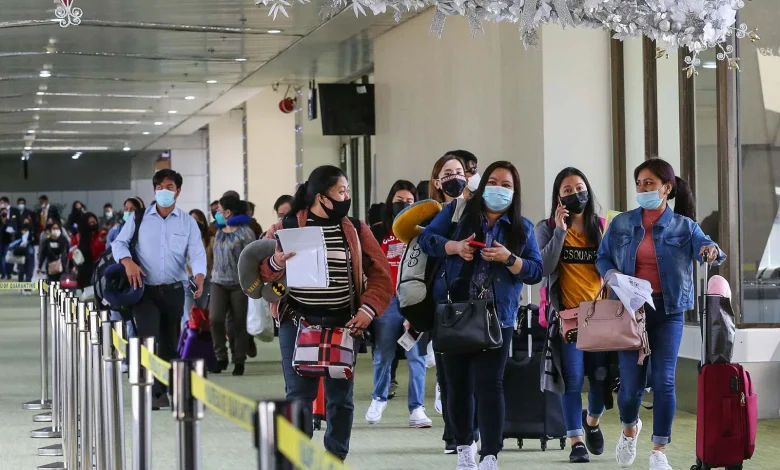OFWs want to be wiser with money, but finlit programs aren’t reaching them

MANILA, Philippines – Overseas Filipino workers want to be more financially literate, but the existing government programs made for OFW money management aren’t communicated to them well enough, a new report from the Philippine Institute for Development Studies (PIDS) found.
In a December 2023 report on the long-term effects of labor migration in the Philippines, PIDS pointed out how a “lack of systemic financial literacy support” makes OFWs vulnerable.
“Results of primary data collected from interviews with select OFWs and their family members suggest that young OFWs dream of retiring early but may not be provided systematic support for financial literacy,” the report said.
everal government initiatives are in place to boost financial literacy among OFWs. The Overseas Workers Welfare Administration (OWWA) has the Pinansyal na Talino at Kaalaman (PiTaKa) campaign, as well as the Land Bank of the Philippines’ subsidiary Overseas Filipino Bank (OFBank).
The OFBank provides banking services that cater to specific needs of OFWs, like digital banking solutions that let OFWs avail of loans and bills payment services, as well as manage their accounts regardless of where they are.
But PIDS pointed out the need for better promotion of these programs and services.
“The government has been providing some financial literacy programs and tried to provide better financial instruments for OFWs through the OFW Bank. The BSP (Bangko Sentral ng Pilipinas) has even established a unit that targets financial literacy for OFWs. The communication of government initiatives to improve the financial literacy and stability of OFWs has, however, not been systematic enough to make a solid impact,” said PIDS.
In the fourth quarter of 2023, the BSP found that just 35.2% of OFW households were able to save remittances. Citing the World Bank, the BSP also said in November 2022 that just a quarter of adult Filipinos were knowledgeable in basic financial concepts.
Reinventing the wheel?
On Wednesday, January 31, the House committee on overseas workers affairs held a hearing to discuss proposed measures that hoped to enhance OFWs’ financial literacy, including a free financial literacy training for OFWs.
Committee chair Kabayan Representative Ron Salo said that while lawmakers were aware of an existing financial literacy program with the OWWA, there was a need to institutionalize it.
“Many until now have fallen victim to scams,” said Salo in a mix of English and Filipino.
Department of Finance official Annabelle Gumimpan raised that while the DOF was supportive of financial inclusion programs for OFWs like the one under OWWA, there were already other programs under DOF’s attached agencies, such as the Securities and Exchange Commission’s program to crack down on illegal lending and investment scams.
“With regards [to] implementing the financial literacy campaign for the OFWs, I think we shouldn’t have to duplicate, because… the BSP and the DMW (Department of Migrant Workers) already has a program, so there’s no need for us to implement the wheel. And they’re already implementing the program,” Gumimpan said.
“Precisely,” replied Salo. “Actually, you’re right. We don’t have to reinvent the wheel. But the [reality] now is how there really are a lot of OFWs who are not literate when it comes to finances. That’s why we have this bill to make sure it becomes more effective. We will make the programs better.”
Salo said that awareness of the existing programs were lacking, noting that even some lawmakers inside the room were not informed of such programs as they were being discussed in the hearing.
“So… how exactly is it effective? Kasi kung effective na po ‘yung mga programs na ito, hindi na po natin kailangan pang pag-usapan po rito,” he said. (Because if these programs were effective, we wouldn’t need to be talking about them here.) – Rappler.com
Source: OFWs want to be wiser with money, but finlit programs aren’t reaching them (rappler.com)



